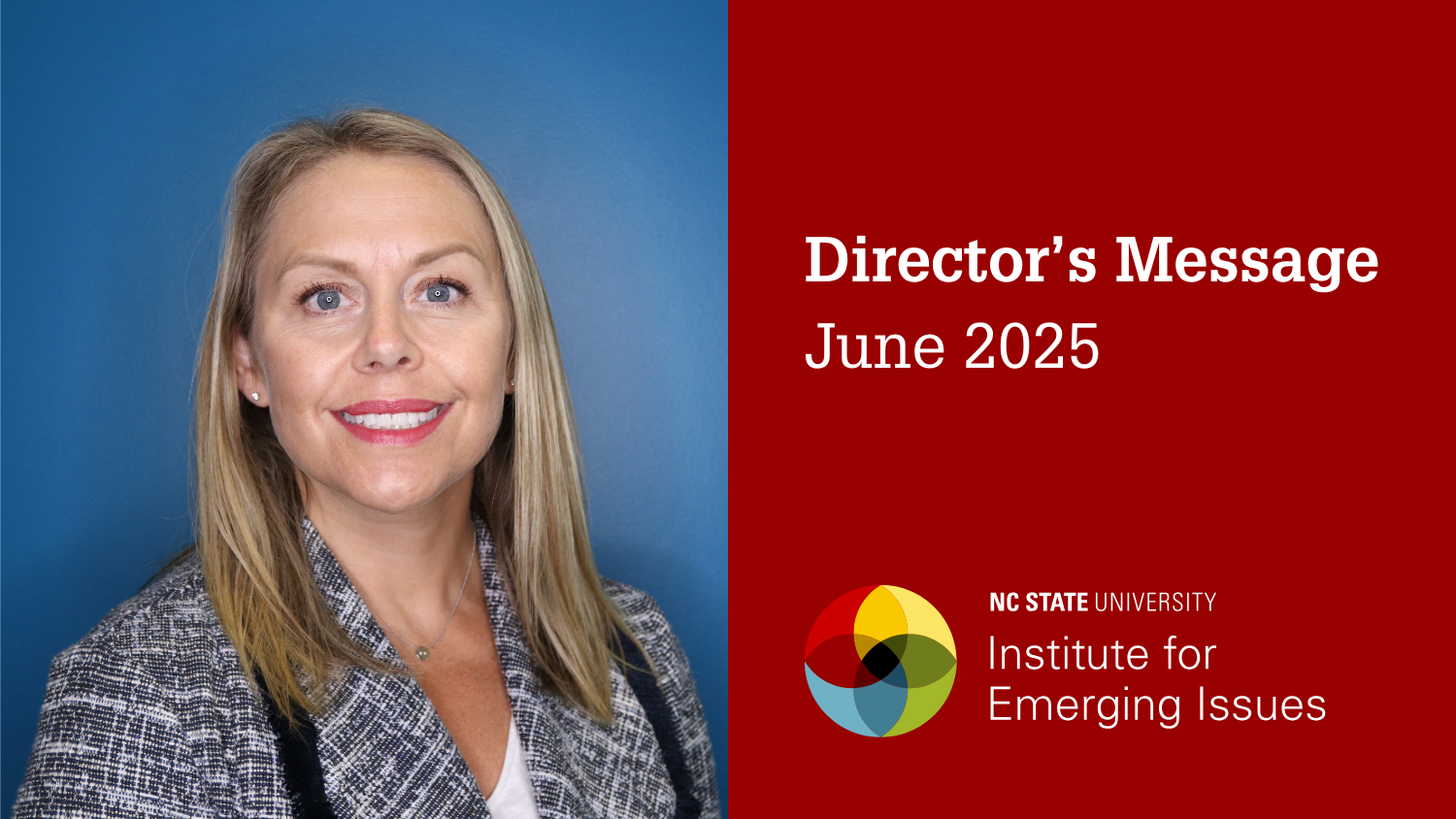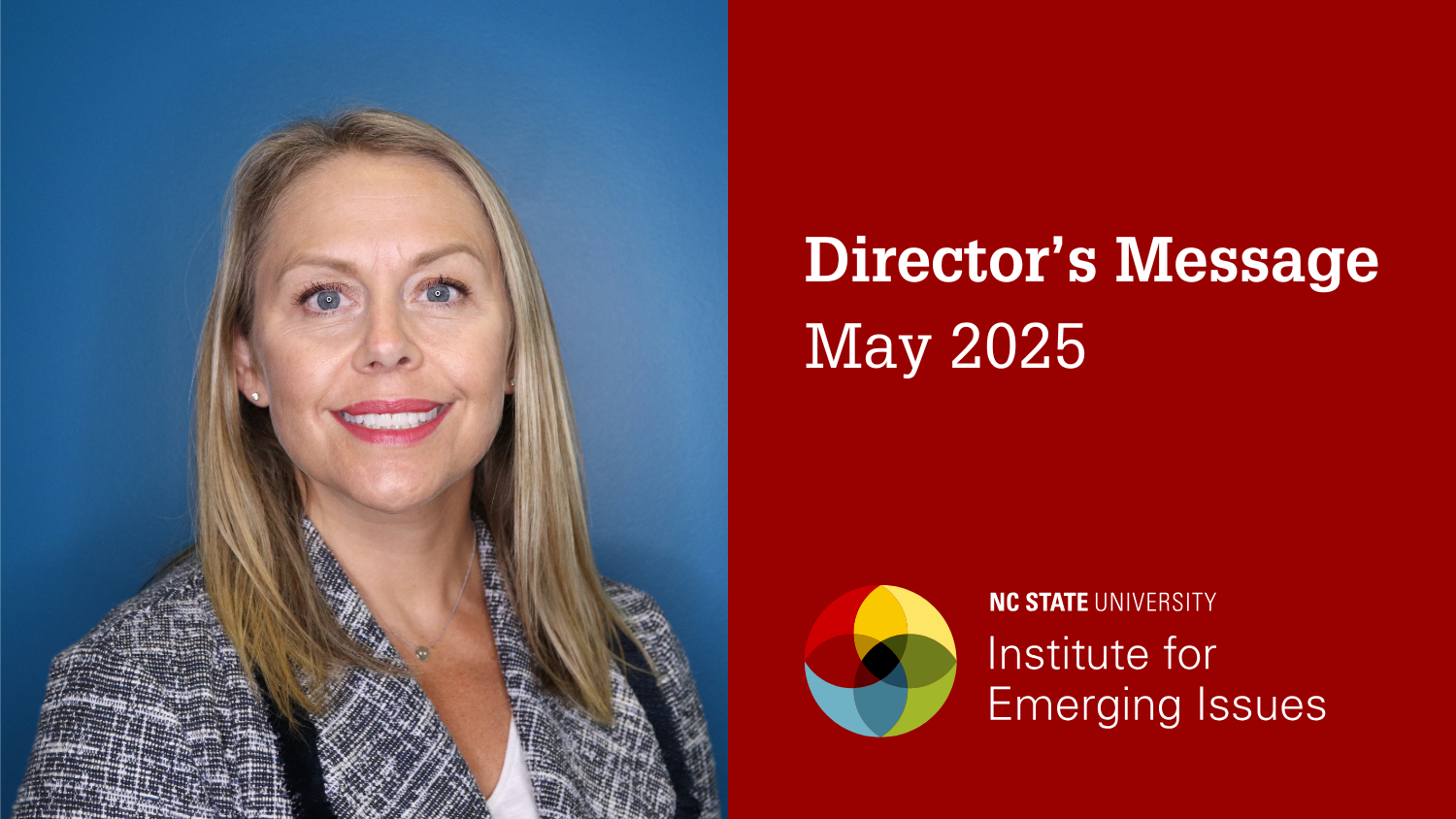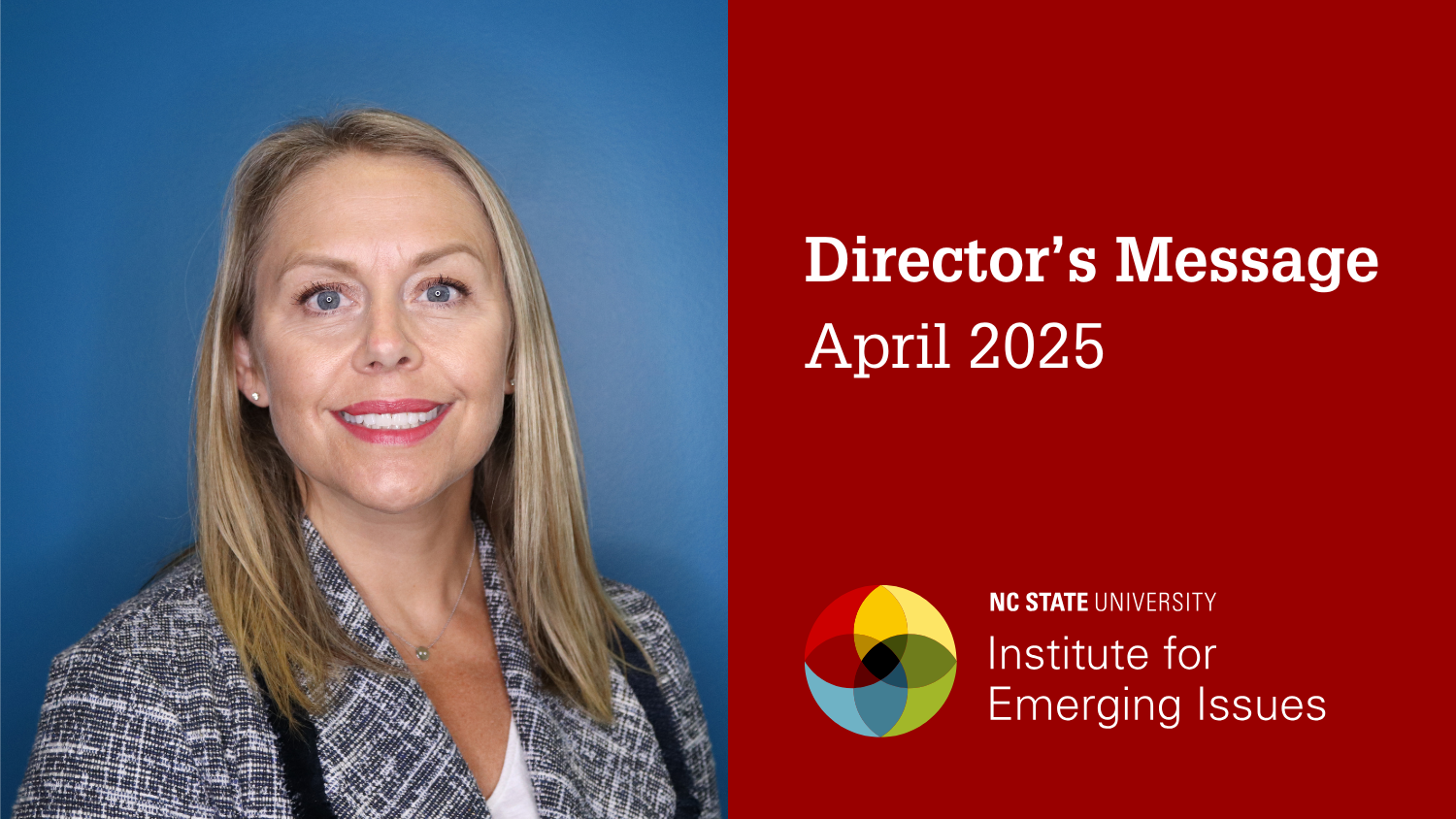Director’s Log | January 2020
 A Farmer and a Businessman Making Broadband ‘Juice Worth the Squeeze’
A Farmer and a Businessman Making Broadband ‘Juice Worth the Squeeze’
There are at least two questions North Carolinians face as more and more of us get access to high-speed broadband.
- Can we afford to have it?
- Can we afford not to have it?
Put another way, we have to resolve if “the juice” – the value of high speed internet to us – is worth “the squeeze” – the out of pocket cost.
Prices vary, a lot, by location, but in general, if what the FCC defines as high speed internet (25 megabits per second for download, 3 megabits per second upload) is what you are looking for, you might be looking at $50-$60/month, plus taxes tags and fees. A lot of people in the state are choosing not to buy it: according to the North Carolina Broadband Infrastructure Office, just 59.4 percent of people who could have broadband are choosing to. Those percentages are lower in some of our rural counties and among lower income residents of our cities.
The reasons vary. About 20 percent of people say they don’t have access to a proper device to use broadband (mobile phones are good for a lot of things, but applying for jobs, taking courses, uploading databases and some other uses are still pretty complicated). Others don’t know how to use it; they would need formal or informal training in how to take advantage of broadband.
Others find the cost too high – for them, the benefit doesn’t outweigh the cost.
At our upcoming Emerging Issues Forum, ReCONNECT to Technological Opportunity, February 10 in Raleigh (register!), we’ll spend a day learning from people across the state and nation who are discovering the return on investment high speed internet can have for them and their communities, whether they are in business, education, government or nonprofits, and whether they use broadband to help them do homework, retrain, find customers or improve their health.
Here are two stories of people who illustrate the power of broadband to change economic outcomes:
When John Mark Lavigne graduated from NC State in 2017, he wanted to go back to work on his grandfather’s farms in Lenoir, Jones and Onslow counties, but he wanted to take advantage of the value he thought big data could bring to the operation. Over the past three years, he’s connected his combines and tractors to the cloud to upload data from the fields. He flies drones to determine where more fertilizer is needed or where weeds need to be killed. For now, he can’t get wifi everywhere he needs it, but he’s building a data network, and he says that last year gave him the best yields yet. The approach is a mix of old school and new school: “Now our farm revolves around data,” he told me. “We take all of my grandfather’s proven techniques and apply data analytics to make them even more effective.”
Phil Drake wanted to live and work in Macon County. But as he tried to build his tax software company, he needed to reach markets well beyond western North Carolina. To do that, he needed reliable high speed service. When he couldn’t find that service himself, he partnered with the Eastern Band of Cherokees to create BalsamWest Fiber Net, which built a high speed fiber network in western North Carolina. Now Drake Software is just one of close to 20 companies Drake owns in western NC. Besides the lower cost of real estate, he worries less about turnover; like him, his employees want to live in the region. As he told the Smoky Mountain News: “I hope to work there till I die; the employees I picked, I hope they’ll work there until they die.”
Lavigne and Drake aren’t alone. A recent study by Amazon and the US Chamber of Commerce shows rural businesses in North Carolina could add an additional $1.9 billion to their local economies if they were taking full advantage of the power of broadband.
But using broadband is an individual decision, and it’s going to require training for most people to learn the full possibilities it offers. Libraries or health care providers may need to offer workshops for seniors to recognize how to use broadband to support their health. Young people may need help learning how to take full advantage of research online, and they may need to show their parents how to use broadband to take courses online.
Even the ripest fruit doesn’t give up its juice voluntarily. You need to know how to extract it. Join us February 10 for a squeeze class!
- Categories:


